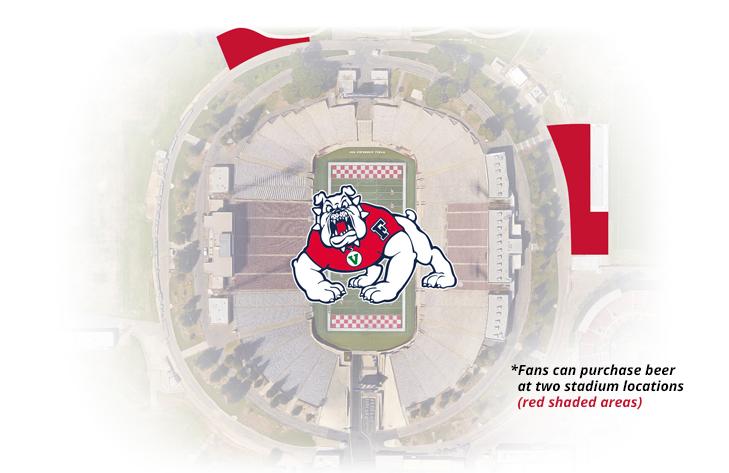Fresno State has officially announced the return of alcohol sales at home football games after the sale had been prohibited in 2006.
The university hosted a news conference last Friday and said football fans will be able to purchase beer at games this upcoming season.
“This was something that the university wanted to make sure that we did in a very responsible and moderate way,” said Debbie Adishian-Astone, Fresno State’s vice president for administration.
Adishian-Astone said the university’s goal is to maintain the family-friendly atmosphere at Bulldog Stadium.
“We want to make sure that all of our friends can enjoy and have a good time at the game and obviously be responsible with their drinking,” said Adishian-Astone in response to concerns about the impact of beer sales on the environment of football games.
To ensure that the re-introduction of alcohol is done safely, Fresno State will only be selling alcohol at two beer gardens located just outside the stadium at the southeast and northwest corners. Alcohol will not be sold at the concession stands, and there will be a two-item limit on each sale.
Customers will be asked to prove their age with a valid ID and will not be sold alcohol without a wristband. Additional security will also be placed throughout the stadium and in both beer gardens, Adishian-Astone said.
She said the university is working on additional alcohol safety programs for students as well as placing video messages around the stadium that promote responsible drinking and appropriate behavior.
Patrons will be permitted to return to their seats with beverages to watch the game, according to a news release from the university. Beer sales will be cut off at the end of the third quarter.
Although the lift of the ban was an executive order that applies to all California State Universities, the decision to reinstate the sale of alcohol at university athletic events is left to the discretion of each individual campus’s president and administration.
Adishian-Astone emphasized this was a decision that has undergone a great deal of consultation and debate, despite admitting that the university lost approximately $200,000 each season on beer sales since 2006. She maintained, however that the financial incentive was not the chief motivator.




